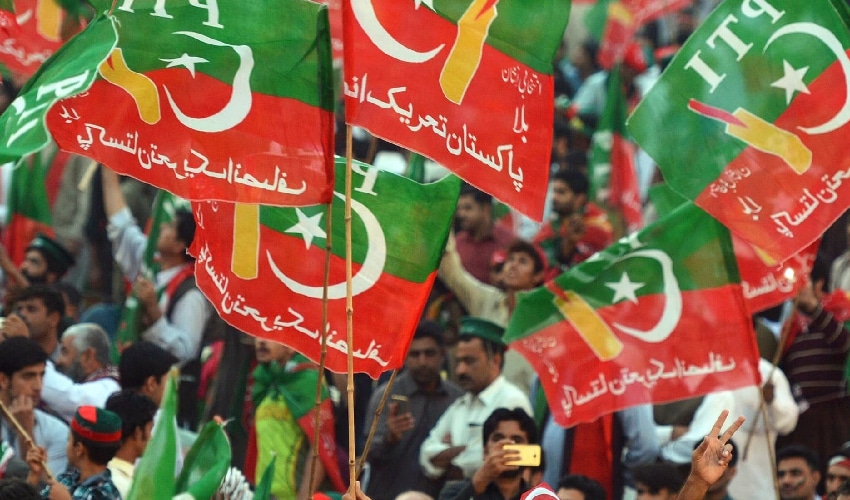PTI’s Gohar Ali Khan reveals plan to grab reserved seats.
Says post-general elections, PTI can “reform our party”.
“This is Plan C — bring back people [under one umbrella].”
Despite all seemingly lost for the Pakistan Tehreek-e-Insaf (PTI), the former ruling party is determined to give a tough time to its political opponents as it has announced ‘Plan C’ for when votes are cast and assemblies will be formed.
The PTI, founded by former prime minister Imran Khan, faced two major setbacks last Saturday — the Supreme Court ruling in favour of the Election Commission of Pakistan (ECP) and depriving PTI of its ‘bat’ symbol and the Tehreek-e-Insaf Nazriati backtracking on a deal with the party to share its symbol for elections.
Although all PTI candidates will be contesting independently in the February 8 elections with various symbols — kettle, brinjal, tongs, etc — their leadership had voiced concerns that they would not be getting reserved seats as they are allocated for political parties.
This would be a major setback for any party that wishes to come into power in the National Assembly, which has 336 total seats 70 have been reserved for women and non-Muslims.
In the Balochistan provincial legislature, out of 65, 14 are reserved seats; Khyber Pakhtunkhwa has 30 reserved in the house of 145; Sindh has 38 reserved seats, while the total number is 168; Punjab has 371 seats out of which 74 are reserved.
PTI’s senior leader Barrister Gohar Ali Khan also told journalists in Islamabad that he feared there would be “horse-trading” as when his party’s candidates won, other political parties would poach them to strengthen their position.
This would be, as per some legal experts, legal as they will not be bound by party policy since they will be elected as independent candidates and cannot be disqualified under Article 63-A (which deals with a party member’s defection).
In conversation with Geo News’ Hamid Mir, PTI leader Gohar said when the February 8 elections are done, “we will not get reserved seats”.
“However, there is something: Once our candidates are elected, they can join us and we can reform our party.”
“So we will have three days after the elections. When they join us and tell [relevant authorities] that they have joined this party, we can get the reserved seats.”
When the anchorperson said this was a strategy that he shouldn’t have revealed on live television, he said: “This is our Plan C — to bring back the people [under one umbrella].”
Barrister Muhammad Ahmed Pansota told Geo.tv that the political party is still intact, it is its symbol that has been taken away for the upcoming elections.
“So once the general as well as the intra-party elections take place, the party can always apply on the basis of their symbol for the reserved seats. Also, if they join a political party, they can also get the reserved seats; it will be an interesting situation.”
Meanwhile, Pakistan Institute of Legislative Development and Transparency (Pildat) President Ahmed Bilal Mehboob is of the view that the reserved seats are proportional to the number of winning candidates and their respective political affiliations.
However, independent candidates — after the elections — can join a political party that had contested the polls, has representation in the parliament, and also had filed the nomination papers for its candidates for the reserved seats, Mehbood said while speaking to Geo.tv.
Commenting on the prospects of independent candidates establishing a new political party which neither had taken part in the polls nor had filed nomination papers, to begin with, the Pildat president maintained that the rules and regulations do not allow for such a move.

